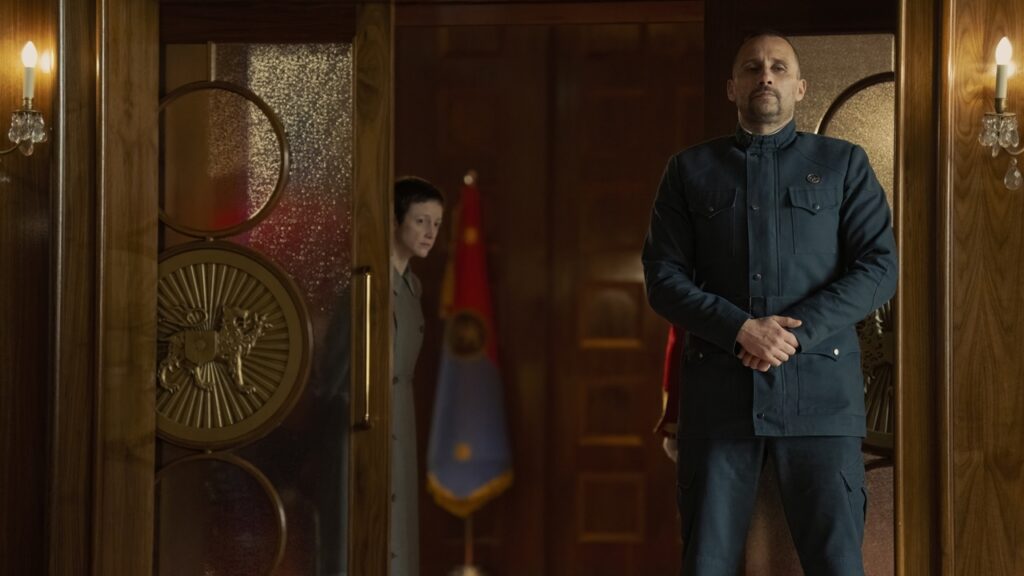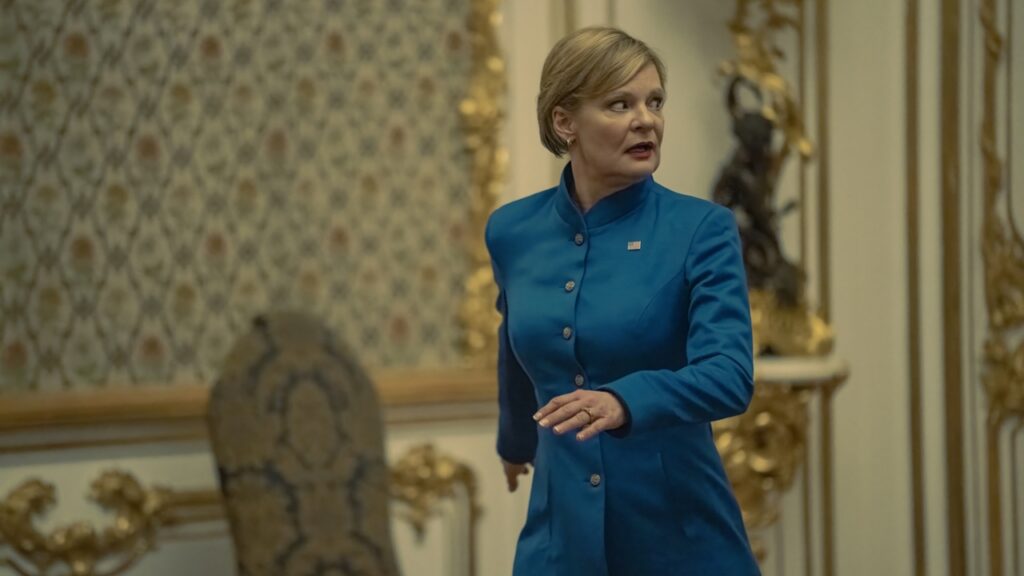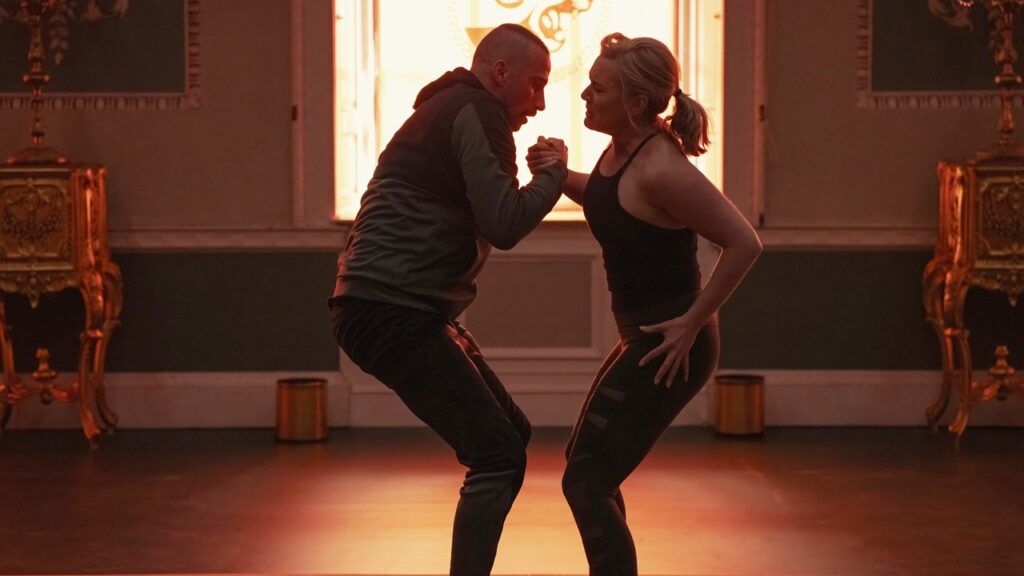Read also:
How to Watch FX Live Without CableHow To Watch AMC Without CableHow to Watch ABC Without CableHow to Watch Paramount Network Without CableIt might help some to think of The Regime less as satire and more as dark farce with political opinions. Yes, there’s nothing especially new here in the series’ send-up of a paranoid autocrat, Chancellor Elena Vernham (Kate Winslet), whose withdrawal from the larger world has brought an ever-decreasing grasp of reality. But sometimes, it is enough for a story to just make you laugh and feel sick with fear for the real world.
Much like creator Will Tracy’s The Menu, The Regime‘s advertisements suggest a different viewing experience than it delivers. And, as with that film, the audience risks missing a nasty treat if they don’t meet the series where it lives. The film arrived when “Eat the Rich” entertainment seemed to be spiking. However, The Menu’s focus didn’t lie with economics, at least not solely or predominantly. The Regime hits MAX as America is facing an eight-month nightmare Presidential election campaign goosed by the worst human being you’ve ever known, armed with his naked desire to rule entirely for personal gain and without even the slightest hint of criticism. However, the show’s goal isn’t a six-episode allegory on the excesses of executive power.
The dialogue, from an array of writers including Tracy and Bodies, Bodies, Bodies writer Sarah DeLappe, often suggests Veep with a less dexterous tongue. It keeps the palace intrigue fun and quick even when it the notes feel quite familiar. The willingness to spike international incidents with amoral verbal tartness is a delight.

That isn’t to say The Regime is devoid of insight or humanity. The series is impressive in its ability to capture people in power at their most unhinged without reducing them to mere cartoons. Winslet’s Chancellor is the closest to four-color status with her fear of contamination and increasingly bizarre rituals. However, she’s having so much fun in the role that it is nearly impossible not to forgive her for its excesses. The moments where she shifts from a nigh-delusional recluse to a frightening national leader unafraid to wield her power to settle scores, real and imagined, are especially striking and rewarding.
Characters that initially suggest a certain static two-dimensionality quickly achieve surprising depth. Herbert Zubak (Matthias Schoenaerts), a former soldier who the show rather nakedly implies is a war criminal, has been brought to the fictional Eastern European country’s seat of power to act mainly as Vernham’s bodyman. However, he quickly becomes a Svengali of sorts, leapfrogging several members of her inner circle to become her favorite. His mix of physical rigor and dubious “natural” cures immediately pulls the physician-turned-chancellor (irony!) into his orbit. Before long, inappropriate codependency riddles their relationship.

And yet, the audience can understand it. Played by Schoenaerts as a man white-knuckling it through his own mental degeneration, Zubak is an appealing mix of rough bluntness and barely hidden vulnerability. The actor refuses to reduce the soldier to either a dangerous cancer on the “republic” or a wounded warrior who might be healed if someone would just love him right. He’s both, and that dichotomy is captivating.
He’s twinned in many ways by the initially brusque and brittle Agnes (Andrea Riseborough), the Palace Manager and only woman inside the Chancellor’s inner circle. Again, the watchword of the performance is balance. Riseborough thaws Agnes faster than expected, but it never feels rushed. Additionally, her evolution further underlines Schoenaerts’ work, suggesting that the Chancellor’s warmth towards him is not just the reaction of a woman losing touch with reality. However, her role is not just one of surprising maternalism. Viewers also see she plays the internal political game better than almost anyone. Her every move keeps her just ahead of the shifting political winds to keep herself upright and safe.

Guest turns by Marsha Plimpton as American Senator Judith Holt, visiting to stabilize relations between the countries, and Hugh Grant as the appealingly gone-to-seed previous Chancellor give the series a deep bench. They keep the series from collapsing into overly repetitious storytelling as they bring a different flavor to the mix. Even better, each guest star shakes the status quo of the Palace, even if it is ever so slightly. Even when the familiar attempts to re-establish itself, viewers can feel the lingering effects.
Finally, The Regime feels big in its visuals. Cinematographer Alwin H. Küchler, working with series directors Stephen Frears and Jessica Hobbs, establishes the Palace’s geography well. They’re careful to give the audience enough of a sense of it to feel like an actual location. However, the team also leaves enough undefined that it seems infinite at times and horribly cramped at others. This mix makes it effective as a tool wielded by the Chancellor. For instance, she briefly separates Senator Holt from her security duty and sends the American racing away.
Near the end of one episode, Zubak returns from an event, stung by a comedian’s words. By way of reassurance, Vernham tells him that the thing about comedy is no one is really good at it. Will Tracy’s ongoing efforts would suggest that that is very much not the case.
The Regime demands your allegiance on MAX starting March 3.